With every organization and constituent impacted in one form or another by Gov. Gretchen Whitmer’s new fiscal budget released this morning, as one might expect it didn’t take long for the responses to begin rolling in both positive and negative depending on how each was treated in the blueprint. We will share with you each response as it arrives, and update this post regularly.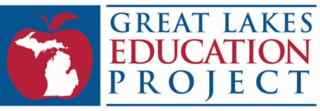
Great Lakes Education Project Executive Director Beth DeShone provided the following comment today, after the presentation of Governor Gretchen Whitmer’s budget, and the “astounding revelation” that Whitmer plans to dramatically cut funding for students attending online public schools during a pandemic, while many public schools still refuse to open their doors for in-person learning:
“Governor Whitmer’s move to slash funding for public school teachers and students who attend public school online is a broadside attack on public education and on families in the middle of a global pandemic.
“Whitmer forced students to attend classes online when she ignored the CDC, ignored pediatricians, ignored the science and locked kids out of school buildings across the state. Many of those schools still haven’t re-opened. Michigan students rely on online public schools now more than ever.
“That Whitmer would slash the budgets that pay Michigan teachers’ salaries, provide computers for kids, and online classrooms that so many students rely on daily is both astounding and reprehensible.
“Michigan kids and their families deserve the Governor’s support, not a budget cut. The public school teachers Whitmer attacked today deserve that support, too.” 
Amber Arellano, executive director for The Education Trust-Midwest, issued the following statement on Governor Whitmer’s Executive Budget Proposal:
“Governor Whitmer’s budget proposal begins the very necessary investment in Michigan students who are among the most underserved by the state’s educational system. Such investments are critical to addressing longstanding gaps in opportunity and achievement that national research suggests are widening during the global pandemic.
“As an organization committed to making Michigan a top ten education state with a particular focus on Black and Brown students, low-income students, students with disabilities and English learners, we are heartened by these proposed investments in underserved groups of students.
“While much more investment — and structural changes to the state’s school funding system — are still needed to ensure educational recovery and address the great inequities of Michigan’s unfair public school funding system, Governor Whitmer’s fiscal year 2022 budget would make important early progress on the investment front.
These investments include:
- Prioritizing Educational Recovery Efforts: Prioritizing funds to support Michigan’s education recovery, as well as funding for two years of in-person summer learning for which we have advocated since the pandemic crisis began in spring of 2020.
- Investing in Early Childhood: Increased allocations for early childhood education through the Great Start Readiness Program.
- Expanding Post-Secondary Opportunities: Ongoing support for Michigan Reconnect and Futures for Frontliners will help make postsecondary education accessible and affordable for Michiganders as we pursue the state’s postsecondary attainment goal of 60 percent by 2030.
“We are also encouraged to see dedicated resources to addressing many of the immediate needs of the COVID recovery, including finding students who have not returned to school, recovery services for young students with disabilities, support for college completion and technical assistance for expanding best educational practices through a new investment in Launch Michigan as part of the Governor’s Emergency Education Relief Fund.”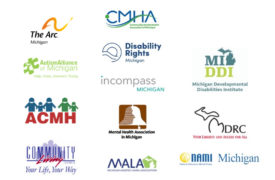
The Direct Care Workers Coalition of a dozen agencies responded saying, today’s budget announcement from Gov. Gretchen Whitmer followed up on her State of the State message by introducing a plan to make permanent a $2.00/hour wage increase for Direct Care Workers.
Residential and vocational Direct Care Workers provide much-needed personal care, training, emotional support and respite to people with developmental disabilities and mental illness. Currently, the temporary $2.00/hour wage increase is set to expire February 28th.
Todd Culver, CEO of Incompass Michigan says, “The Governor’s actions on this issue are tremendously important,” adding, “We hope this is an early indication of state policymakers’ willingness to extend the temporary increase beyond the end of this month. If Mar. 1 arrives without a solution in place, the state’s Direct Care Workers will take a significant pay cut—a cut they can ill afford.”
With an average starting wage of $11.44 per hour, Direct Care Workers have urgently needed the state’s temporary increase.
Robert Stein, General Counsel for the Michigan Assisted Living Association, says, “We can’t afford to lose the very workers that are keeping around 100,000 Michigan individuals and their families strong and supported,” and adds, “We are eager to work with the Governor and Legislature to help move this crucial issue forward.”
Coalition members hope the Governor’s recommendation will be acted on in the coming weeks.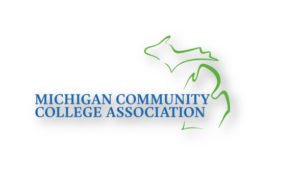
Following introduction of the Fiscal Year 2022 budget by the Governor Whitmer’s administration, Michigan Community College Association President Michael Hansen issued the following statement:
“Michigan’s community colleges are pleased to see continued investment in new learning opportunities at community colleges for Michiganders through the Reconnect and Futures for Frontliners programs. Funding these programs will allow us to keep providing educational tools to advance the careers of our residents.”
“Community colleges have long been the best place for high-quality affordable education, and we are now proud to have these programs to help us further help close the talent gap in Michigan. These tools will be critical to helping our state and its people recover from the economic struggles that the pandemic created.”
“We’re also pleased to see an increase in funding for our standard operations as well as money for the COVID-related expenses we are encountering during these difficult times.”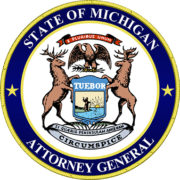
Michigan Attorney General Dana Nessel issued the following statement, noting her appreciation for proposed allocations in the state budget to support her office’s work:
“I am grateful to Gov. Whitmer for including two important additions to my department’s budget: 1) an investment to implement the Legislature’s Clean Slate initiative that will allow us to help hundreds of thousands of Michiganders expunge certain enumerated criminal convictions; and 2) an investment to establish the Legislature’s Address Confidentiality Program – a program that is vital to protect the victims of domestic violence. Our department is committed to working on these innovative programs as well as continuing to pursue child support enforcement, financial crimes against the elderly, and the Legislature’s continued support for the Sexual Assault Kit Initiative across the state, among many other initiatives.”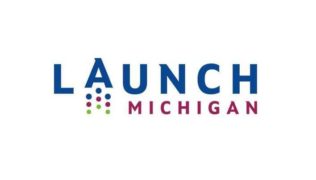
Launch Michigan says, the Whitmer Administration FY 2022 budget proposal breaks new ground in Michigan by allocating additional funding to students whose learning needs are greater. The budget also supports the Michigan Center for Educational Research and Information (MCERI), an organization charged with leading the replication and scaling of best practices in instruction, administration, and student support.
Launch Michigan, a statewide K–12 partnership consisting of education, business, parent, philanthropic and civic leaders, issued the following statement in support of the Governor’s proposed budget:
“Launch Michigan is extremely pleased to see Governor Whitmer leading the effort on academic recovery for Michigan children,” said Launch Michigan president Adam Zemke. “Now that she has formalized an educators’ council to work through practices, and has introduced significant resources in her budget proposal, we look forward to working with legislators to advance these best practices through the appropriations process.
We also applaud the Governor’s proposed investment in MCERI, which, through research, will help accelerate improvement of Michigan’s schools and close longstanding achievement gaps. Ultimately, it’s this kind of work that will help Michigan ensure every one of its students is prepared for success after high school.”

The Michigan Environmental Council shared the Filer First Coalition response today. Gov. Gretchen Whitmer on Thursday recommended a $55 million general fund appropriation for grants for schools to install and maintain filtered water fountains with bottle fillers and, in some cases, on-tap filters. With this proposed funding, nearly 1.5 million children and tens of thousands of adults are one step closer being better protected against lead from their school’s drinking water.
This “Filter First” approach, which is based on the Natural Resources Defense Council’s model legislation, is the most health-protective, cost-effective and immediate way to remove lead from school drinking water. The approach is advocated for by a coalition of environmental, health and education organizations and leaders.
The Filter First coalition worked with two Republican and Democratic Michigan Legislators to introduce a bill package in 2019 to ensure filter installation and maintenance in all public schools and daycares. Senate Minority Leader Jim Ananich (D-Flint) and Sen. Curt VanderWall (R-Ludington), chair of the Health Policy and Human Services Committee, will introduce a similar package this year.
Children are particularly vulnerable to lead exposure in our schools. Water sits stagnant in pipes during weekends and vacations, which dilutes the effectiveness of corrosion control chemicals. These chemicals prevent most lead from pipes leaching into drinking water. COVID-19 school shutdowns make lead leaching even more acute and Filter First funding even more pressing.
Charlotte Jameson, Program Director for Michigan Environmental Council, says, “If the Legislature approves Filter First funding and the legislation to implement it, Michigan will set a national example as the first state to protect our children from lead in drinking water with this approach,” adding, “Our schools face huge challenges, but protecting kids from lead is one we can cost-effectively address. We thank Gov. Whitmer and our bipartisan bill sponsors Sen. Vanderwall and Minority Leader Ananich for championing this critical public health protection. We look forward to getting Filter First across the finish line with them and other decision makers.”
Rebecca Lazarus, Board Treasurer of Ann Arbor Public Schools, which installed a lead filter system for its drinking water, says, “When we found lead in our water system, filtering was the only reasonable and financially feasible solution,” and adds, “Educating students in a safe environment is our number one goal, and providing safe drinking water is part of it. Funding a lead-free water solution was and still is a challenge, but with Filter First funding, districts can make sound decisions to ensure all children in Michigan are drinking clean water.”
Rhonda Conner-Warren, PhD, RN, CPNP-PC, Assistant Professor of Health Programs at Michigan State University’s College of Nursing, says, “There is no safe lead level according to the American Academy of Pediatrics and the National Association of Pediatric Nurse Practitioners,” and adds, “Our practice goals are to see that every child’s growth and development potential is maximized. We thank Gov. Whitmer’s support of the Filter First campaign in the prevention of any further lead ingestion through water systems in locations where children spend the most time in schools settings.”
Jamie Brown, RN, President of the Michigan Nurses Association, says, “Lead in drinking water hurts children’s health as they grow and later in life,” and notes, “The Governor’s plan will help prevent the neurological and other damage that harms far too many of our children. Nurses applaud the Governor for supporting this forward-thinking initiative.”
Nick Occhipinti, Government Affairs Director for Michigan League of Conservation Voters, tells us, “Gov. Whitmer is taking a proactive approach to protecting kids’ health by providing essential grants and funding to schools to ensure kids have safe, clean water to drink,” adding, “We can’t wait when it comes to protecting children’s developing brains from toxic lead and other contaminants. Step one is to get this funding in place; step two requires lawmakers to pass Filter First legislation to ensure schools take protective measures for their students to make sure they have safe water to drink.”
Cyndi Roper, Michigan Senior Policy Advocate for the Natural Resources Defense Council, says, “Schools should be safe environments for kids in every way, but too many school drinking water fountains deliver lead with every sip. By prioritizing safe school water for kids, Governor Whitmer’s budget request and the pending bipartisan Filter First legislation, deserve a gold star for protecting Michigan’s children.”
Other Filter First coalition members include the American Civil Liberties Union of Michigan; the Ecology Center; the Great Lakes Environmental Law Center; the Sierra Club Michigan Chapter; Elin Betanzo, founder of Safe Water Engineering; Abigail A. Dumes, PhD, assistant professor of women’s and gender studies at the University of Michigan; Patrick Kelly, public health professional.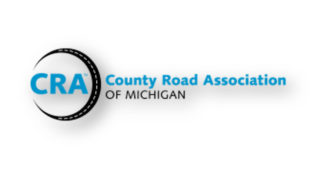
The County Road Association (CRA) of Michigan announced its enthusiastic support of Gov. Gretchen Whitmer’s $300 million General Fund proposal for a broad bridge bundling initiative to restore, rebuild or remove more than 120 local bridges, according to Executive Director Denise Donohue.
Michigan’s 83 county road agencies are responsible for 5,700 bridges, which is 52-percent of bridges in the state. One-in-eight Michigan bridges are functionally obsolete, and many are rated serious, critical or closed, and have significant weight restrictions. The Governor’s proposal dovetails with CRA members’ recent call for a legislative approach to secure significantly more funds for local bridges before the local bridge system experiences catastrophic failure.
Michigan’s Local Bridge Advisory Board received 422 applications this year from counties and municipalities for their five most critical bridges (applications were limited to five per county), totaling $305 million. The program budget was $40 million.
Donahue says, “The typical lifespan of a concrete bridge is 50 years,” and adds, “Among Michigan’s critical and serious bridges, there are numerous bridges older than this – some that are over 100 years old and still in service. A few bridges on the critical bridge list are weight-restricted to three tons – not even enough to accommodate a pick-up truck carrying a cord of firewood.”
CRA is already working with MDOT on a bridge bundling pilot that includes 19 local bridges, funded with $23 million of Highway Infrastructure Program funds received in Fall 2019.
Ed Noyola, CRA Deputy Director and Legislative Liaison, says, “The efficiencies come by working across county and municipal boundaries, as well as state agency boundaries including EGLE and MDOT to achieve fast-moving, single-permit projects of a magnitude that will generate a competitive bid from contractors,” and concludes, “We believe this proposal would reduce the number of local critical bridges and reinforces our commitment to a safer local road and bridge network that can accommodate modern emergency services vehicles, agricultural and timber hauling, commerce and tourism. These are all important to Michigan’s economic well-being and safety.”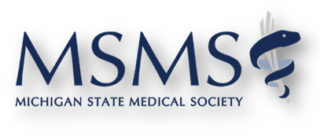
The following is a public statement from Bobby Mukkamala, MD, president of the Michigan State Medical Society, in response to Governor Whitmer’s proposed FY 2022 Budget.
“The Michigan State Medical Society is pleased to see that the governor is prioritizing continued investment in Michigan’s public health, and we look forward to working with her and the legislature on initiatives that will advance the health and safety of Michigan’s residents.
“Right now, our primary focus must remain on successfully navigating the COVID-19 pandemic and vaccinating as many people as possible, as quickly as possible. To achieve this, Michigan’s primary care physicians must be allowed to be involved in the important work of vaccination distribution, and they stand ready to assist in this vital effort. While state resources for vaccinations are important, patients’ relationships with their doctors are strong and our offices provide a great opportunity to improve vaccination rates”






